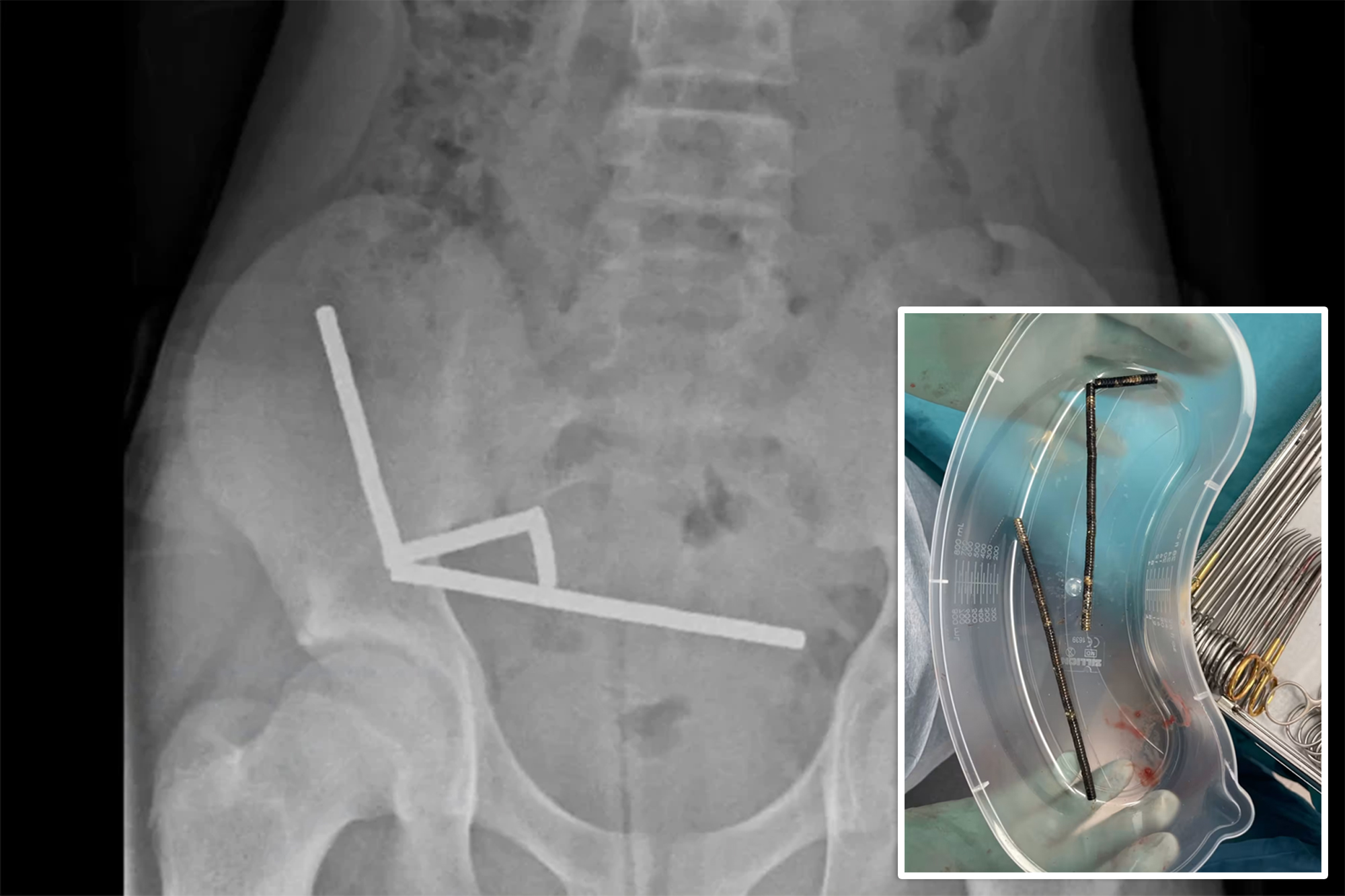A 13-year-old boy from New Zealand underwent emergency surgery after swallowing over 100 high-powered neodymium magnets, which are believed to have been purchased online. The boy was admitted to Tauranga Hospital on the North Island after experiencing four days of severe abdominal pain. Medical professionals reported that he had ingested between 80 and 100 magnets approximately one week prior to his hospitalization, but surgeons later discovered nearly 200 magnets in his intestines.
X-rays revealed that four clusters of magnets were lodged in different areas of his intestines, causing them to pull together and obstruct blood flow to adjacent tissues. This resulted in multiple patches of necrosis, which are areas of dead intestinal lining, necessitating urgent surgical intervention. The operation involved removing both the magnets and affected sections of his bowel. Following the procedure, the unnamed boy spent eight days recovering in the hospital before being discharged.
The case was detailed in a report published in the New Zealand Medical Journal. Doctors Binura Lekamalage, Lucinda Duncan-Were, and Nicola Davis emphasized the serious risks associated with magnet ingestion, particularly highlighting the concerns surrounding the availability of such items in online marketplaces.
In 2013, New Zealand prohibited the sale of small, high-powered magnets after numerous incidents of children swallowing them. These magnets, composed of neodymium-iron-boron, are marketed as toys or stress relievers and are significantly stronger than standard refrigerator magnets. Their powerful magnetic pull allows them to snap together with enough force to pinch or even perforate intestinal tissue if ingested.
Despite the ban, these magnets remain accessible through various online platforms, including Amazon, AliExpress, Trade Me, and Shein. The boy indicated that the magnets he swallowed were purchased through Temu, a rapidly growing e-commerce site. In a statement, Temu expressed concern regarding the incident and stated that it is conducting an investigation. However, the company clarified it could not confirm if the magnets were purchased through its platform.
“We are sorry to learn about the reported incident and wish the boy a full and speedy recovery,” a Temu spokesperson stated. The company is reviewing relevant product listings to ensure compliance with local safety regulations. It also indicated that any non-compliant products would be removed and that action would be taken against sellers who violate platform rules or local laws.
Doctors involved in the case noted that the magnets measured 5 by 2 millimeters each and had formed four distinct lines within the boy’s intestines. This resulted in the bowel sections adhering together, effectively constricting the tissue in between. Medical professionals cautioned that patients who undergo surgeries to remove magnets may face long-term complications, including bowel obstructions, hernias, or chronic abdominal pain.
Researcher Alex Sims from the University of Auckland, who specializes in commercial law and product regulation, commented on the challenges of enforcing New Zealand’s decade-old magnet ban in the context of online sales. He noted that it is increasingly difficult for regulatory bodies to prevent the sale of such hazardous items through international online marketplaces. “While enforcement is problematic, it is concerning if children are purchasing goods on these platforms,” Sims remarked.
This incident underscores the ongoing need for vigilance regarding product safety, particularly in relation to children’s products sold online. As the case illustrates, the allure of convenience from e-commerce can sometimes come at a significant risk to health and safety.







